Gas vs Electric Water Heater: What Are the Differences?
Gas or electric water heater? The decision can be overwhelming, but we're here to help. This article breaks down the benefits and drawbacks of each option, giving you all the information you need to make an informed decision. We'll compare energy efficiency and upfront costs, so you can choose the best type of water heater for your home. Let's make this decision a little easier for you.

How do electric water heaters work?
Learn how your electric water heater keeps your water hot on demand! Using heating elements powered by your home's electricity, the submerged elements heat water in the storage tank. Thanks to the thermostat, the heater turns off once it reaches the desired temperature, ensuring hot water supply until you need it. It's amazing technology that deserves your appreciation!

Benefits of electric water heaters
Discover the advantages of electric water heaters over traditional gas-powered units:
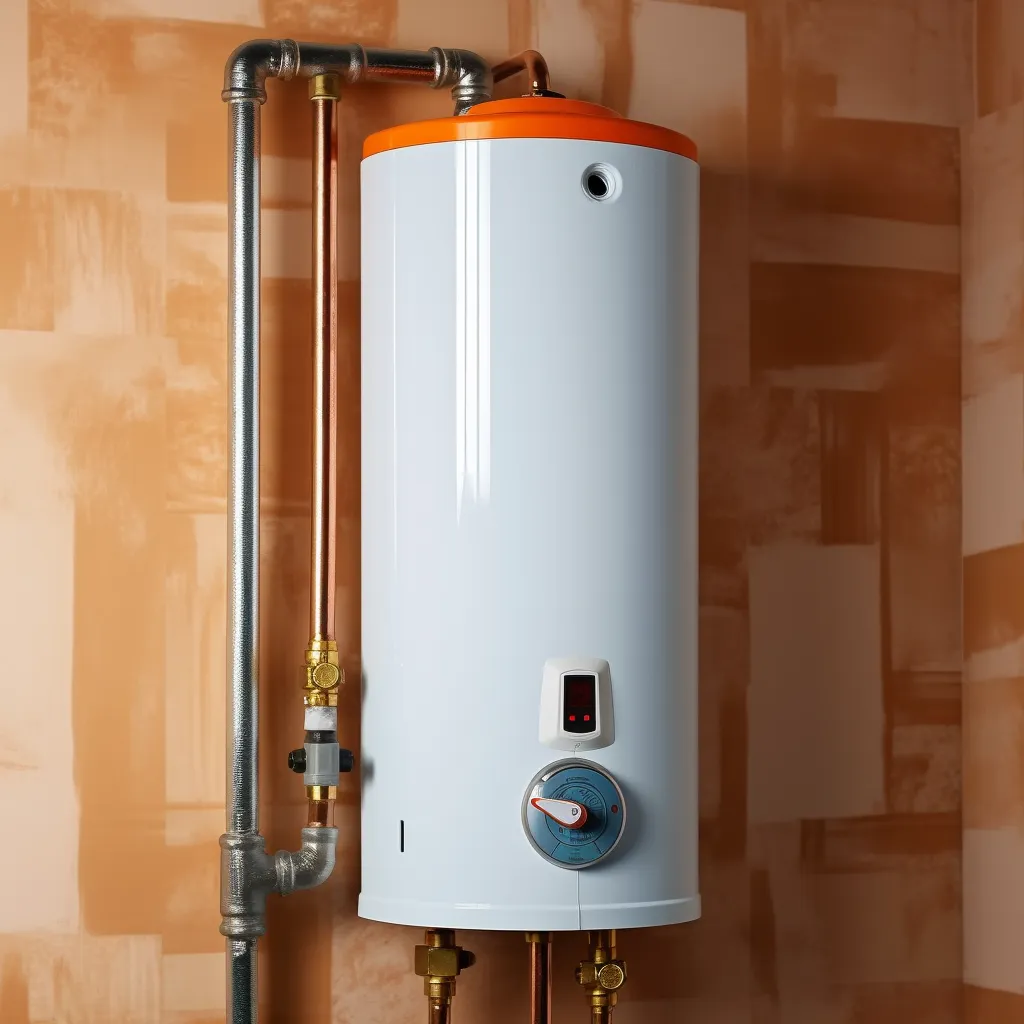
Electric water heaters a cost-effective option for hot water
They also require zero complicated installations or maintenance, making them perfect for busy Berkeley homeowners.
Thanks to their energy efficiency, there's no need for an open flame to heat water, meaning you'll save money on your utility bill.
Electric water heaters have a lower noise level compared to gas units, making them a popular choice.
Their versatility also allows for easy installation in any home, regardless of size.
Disadvantages of electric water heaters
While electric water heaters have many benefits, it's important to consider their drawbacks:

Heating water with electric models can take longer as it takes more time to recover than gas models.
Electric heaters are more energy-efficient, but they come with a higher upfront cost.
Their lifespan is shorter than gas units, so you may have to replace them faster.
Electric models depend on electricity, so during power outages, you may not have hot water.
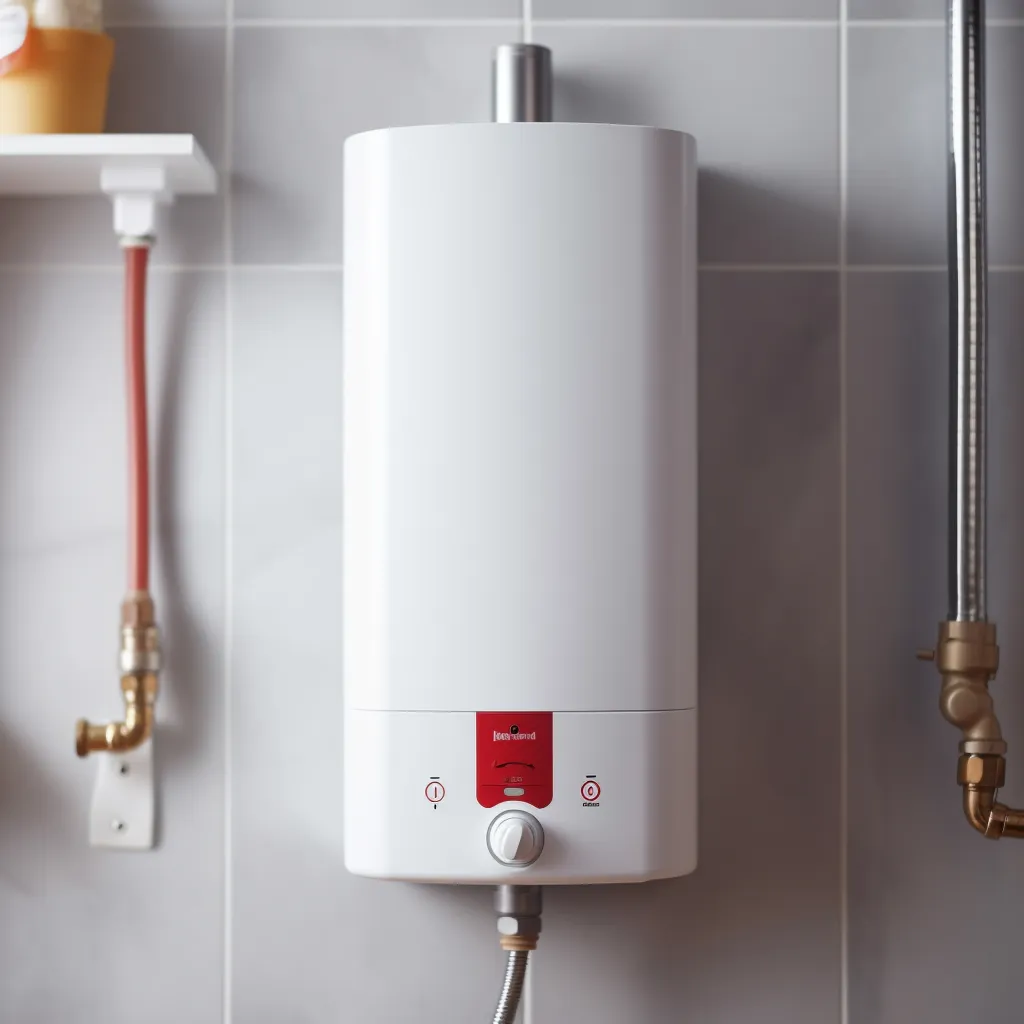

How do gas water heaters work?
Get a reliable supply of hot water with gas water heaters. With a gas burner located at the bottom of a large tank, it quickly heats up the water, ready for you to use. You can enjoy a continuous flow of hot water thanks to the constant cycle of hot water rising and cold water inflow. Open the tap and experience a warm and comfortable shower anytime.
Benefits of gas water heaters
Discover why gas water heaters are the smart choice for your home:
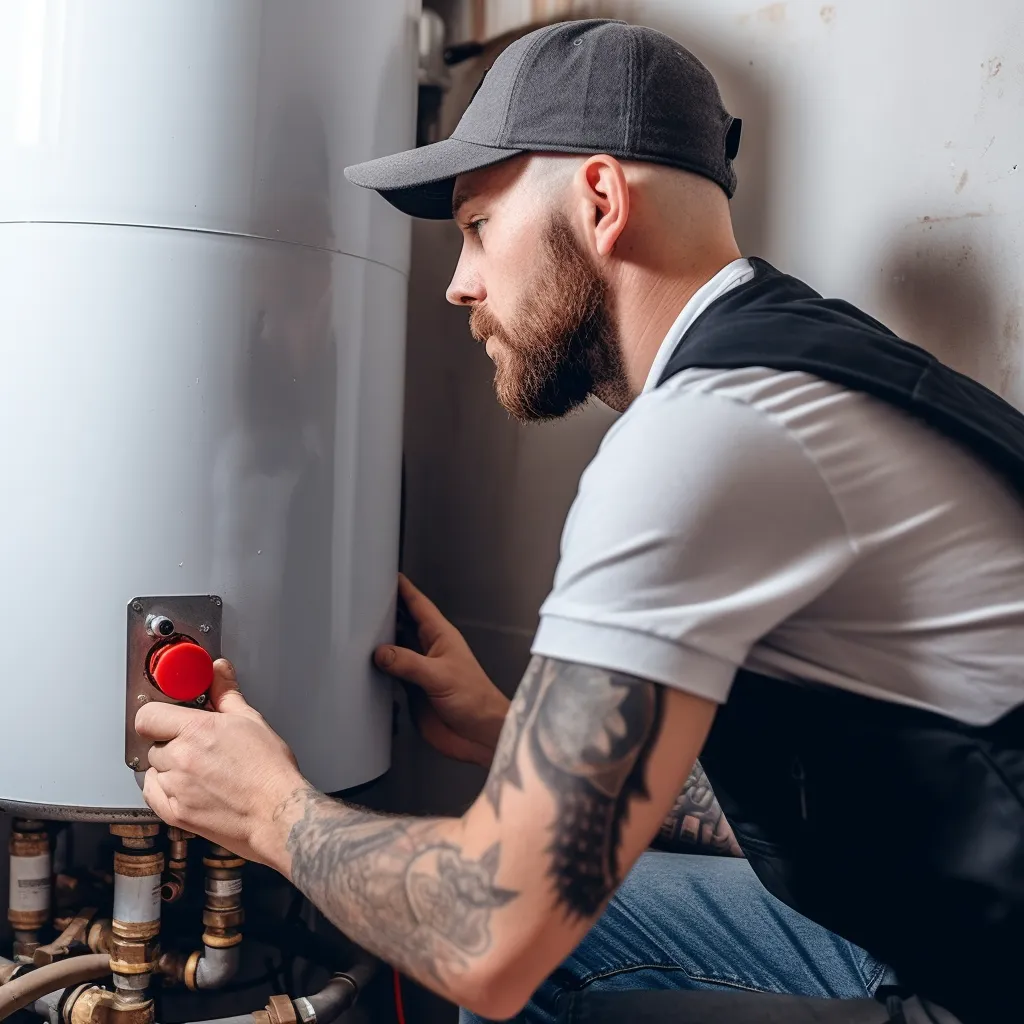
Save money in the long run with this cost-effective option.
Get hot water faster than electric units.
Enjoy a longer lifespan and avoid frequent replacements.
Say goodbye to complicated installations and specialized knowledge.

Drawbacks of gas water heaters?
Gas water heaters offer many benefits, but it's important to be aware of their drawbacks:

Environmental impact: Burning natural gas releases pollutants into the air, contributing to air pollution as a fossil fuel.
Explosion risk: Improperly installed or used gas water heaters could explode, so follow all safety guidelines for your family's safety.
Maintenance costs: Gas water heaters incur higher maintenance costs than electric ones. Arrange for a professional inspection regularly to avoid unexpected expenses.
Installation time: Unlike electric water heaters, gas units take longer to install, normally requiring several hours to ensure a successful installation.

Are electric water heaters energy-efficient?
Want to maximize the efficiency of your electric water heater? Focus on unit size, insulation quality, and operating temperature. Though traditional gas models are often thought to be more efficient, electric heaters are steadily improving their energy ratings and becoming more cost-effective.
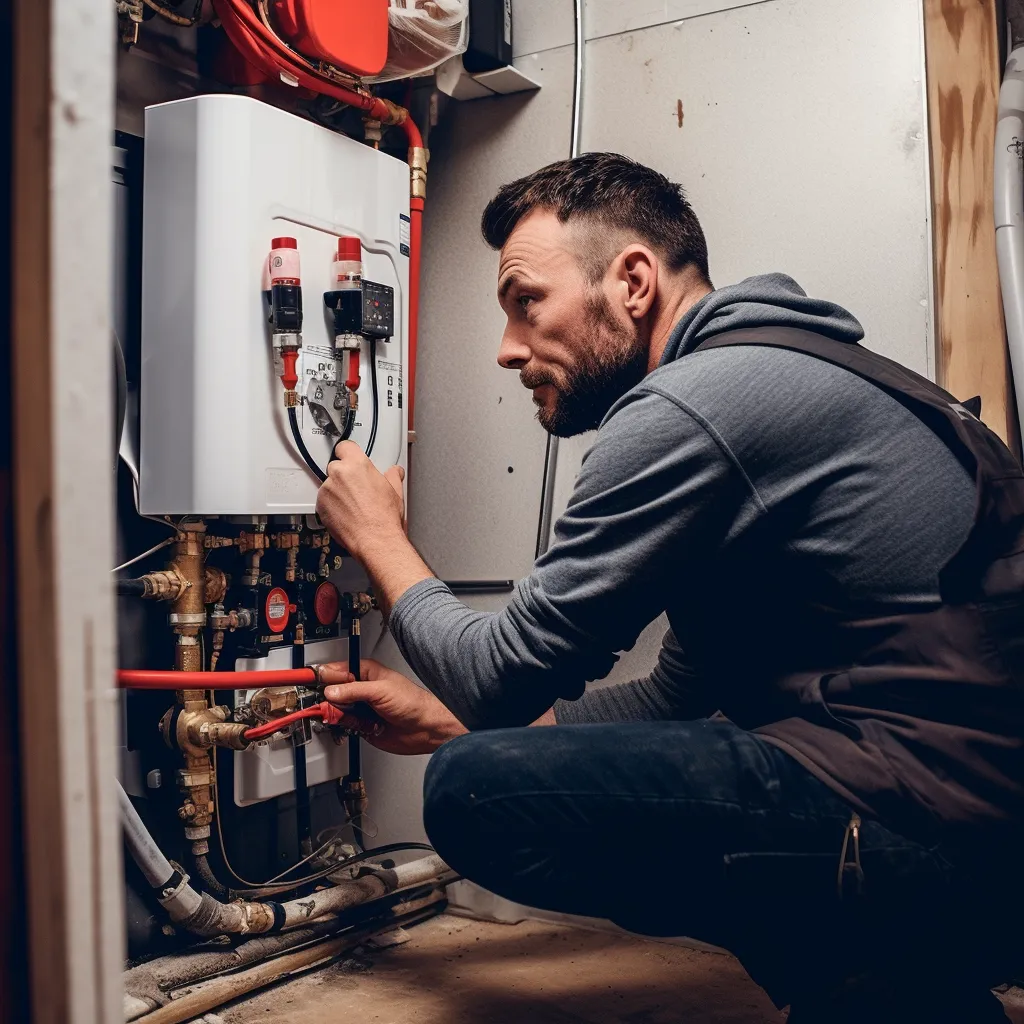
Are gas water heaters energy-efficient?
Save money and energy by choosing a gas-based water heater over an electric one. By heating your water with natural gas instead of electricity, you'll consume less energy and reduce your utility bills. The size and model of your gas-based heater, as well as maintenance practices, affects its efficiency rating. Get the most efficient and cost-effective performance by scheduling routine tasks like tank flushing and thermostat inspections.
What does it cost to buy and install electric water heaters?
Are you considering an electric water heater for your home? With a range of sizes and features available, it can be hard to know where to start. On average, a 50-gallon model costs between $300 and $800, but be prepared to shell out an additional $300 to $500 for installation. Despite the upfront costs, this smart investment will help you save on energy bills in the long run. Just be sure to take stock of your current plumbing and electrical setup before making the switch. Get started on your home upgrade today!

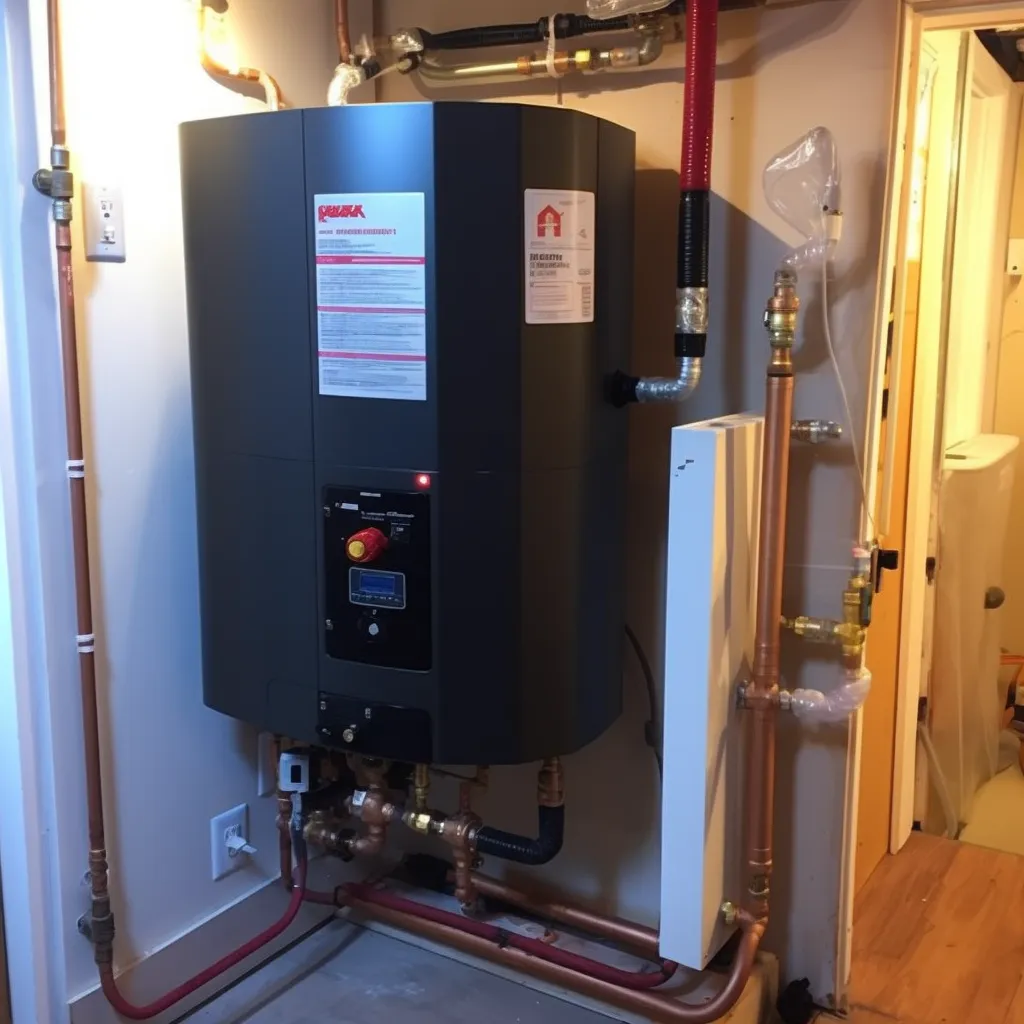
What does it cost to buy and install gas water heaters?
Upgrade your home's hot water with gas water heaters! Available in multiple sizes and price ranges from $500 to $1,500, with high-end models going up to $3,000. Installation costs depend on location and plumbing, but you'll appreciate the long-term savings and energy efficiency. Say goodbye to cold showers and hello to an uninterrupted supply of hot water.

What are the maintenance requirements of electric water heaters?
Don't let your hot water needs go unfulfilled! Keep your electric water heater working properly with these simple maintenance tips. Avoid potential dangers by regularly checking the temperature and pressure relief valve. Improve efficiency and prevent damage by flushing the tank every six months to a year to clear sediment buildup. And don't forget to inspect and replace the heating elements as necessary. With these steps, you'll have hot water whenever you need it!
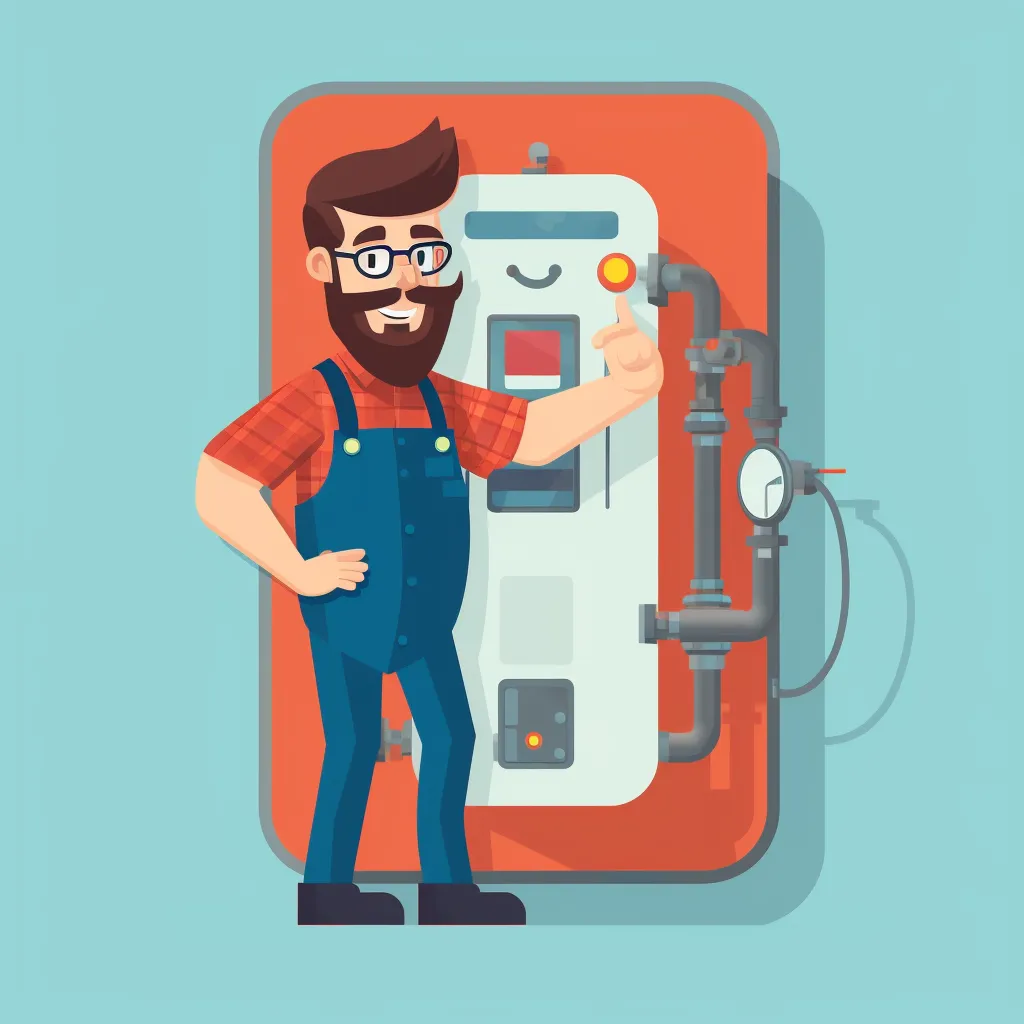
What are the maintenance requirements of gas water heaters?
Keep your gas water heater in optimum condition with regular maintenance. Here are the proactive steps to follow for safe and efficient functioning: flush the tank annually to remove sediment build-up, prevent rust by regulating the anode rod every few years, closely monitor the burner and pilot assembly, conduct temperature and pressure relief valve tests regularly, and check for gas leaks. With proper maintenance, your gas water heater will supply hot water efficiently for many years to come.


What are the safety considerations of electric water heaters?
Safeguard your household with these electric water heater safety measures. It's crucial to anticipate potential hazards with these units, particularly the risk of electrocution and fire. If it's not grounded or functions improperly, electrocution could occur. In addition, overheating or proximity to flammable materials might cause fire hazards. Adhere to the manufacturer's instructions and have a certified specialist handle installation tasks to avoid calamities.

What are the safety considerations of gas water heaters?
Protect yourself from the dangers of gas water heaters by following these crucial safety tips. Carbon monoxide leaks can be deadly, so make sure to install a carbon monoxide detector in the area. Regularly check and maintain your heater to prevent any potential issues, and keep flammable objects far away from it to reduce the risk of fires. Stay safe and take action now.
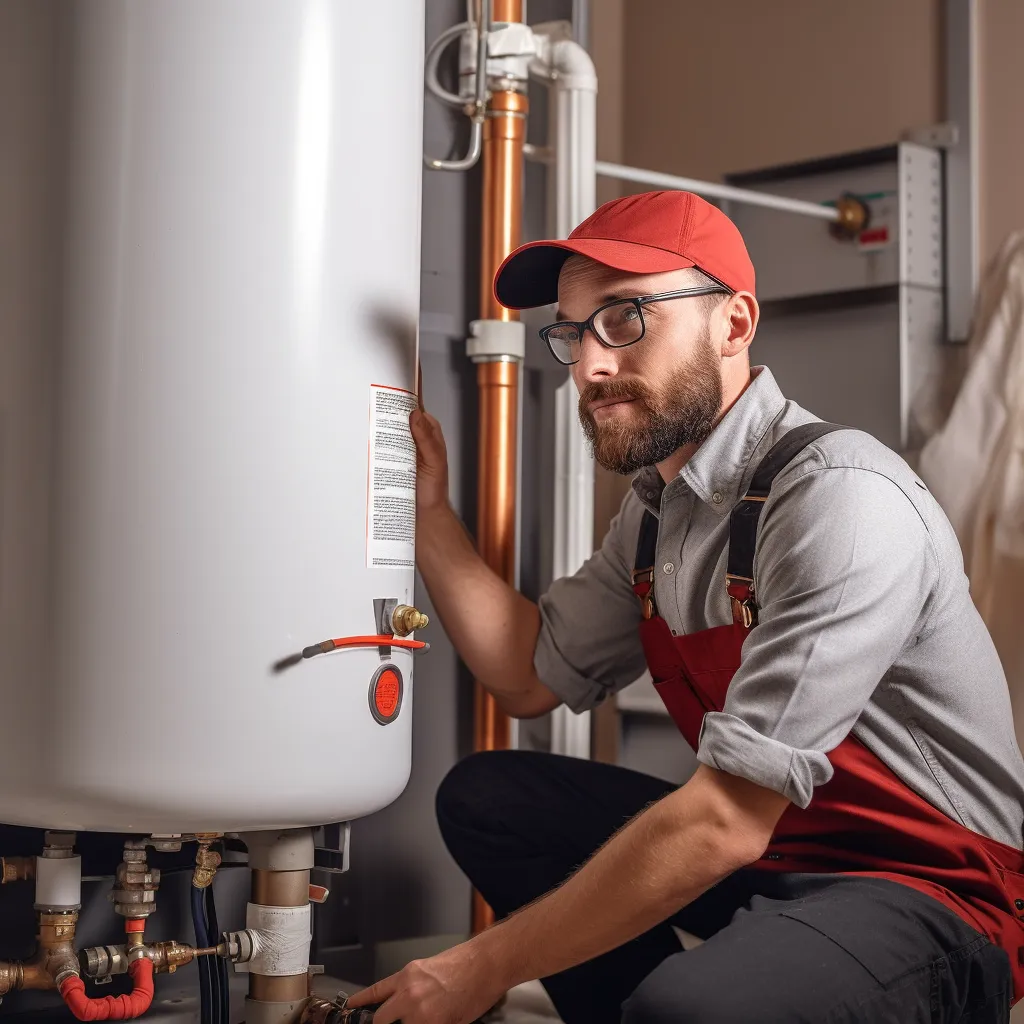
How to choose between electric vs gas water heater
Choosing the perfect water heater can be overwhelming when faced with options like electric and gas. Make an informed decision by considering the following factors:
The size of your household and frequency of hot water usage should factor into your selection.
Electric water heaters are initially less expensive to buy and install, but gas heaters typically offer long-term cost savings due to their efficiency.
Gas heaters are more efficient and less expensive to operate, but they require regular safety inspections due to the presence of flammable materials.
For those looking to reduce their carbon footprint, electric water heaters can emit fewer emissions compared to gas water heaters depending on their fuel source.
The decision will come down to personal preference and what works best for your lifestyle and budget.

Why you should hire a licensed professional
to install your water heater
Thinking about installing or replacing a water heater yourself to save money? Think again. DIY installation of such a critical component can be dangerous and costly if not done properly. Play it safe and hire a licensed, experienced professional to ensure safety protocols are in place and potential issues are identified. Don't risk your safety, trust a pro to handle the job instead. Your peace of mind is priceless, and a licensed expert ensures that you have it.


Be sure to do your research
Choose the right water heater by doing your research. Consider both electric and gas models, their pros and cons, and don't forget about safety and installation requirements. With a proper plan, you can find the perfect water heater for your needs. But remember: hiring a licensed professional for proper installation is essential.
Contact Us
GET IN FULL TOUCH
PHONE: (510) 345-2489
EMAIL:
john@waterheaterberkeley.com
AquaSaver Water Heaters
Berkeley, CA 94702
